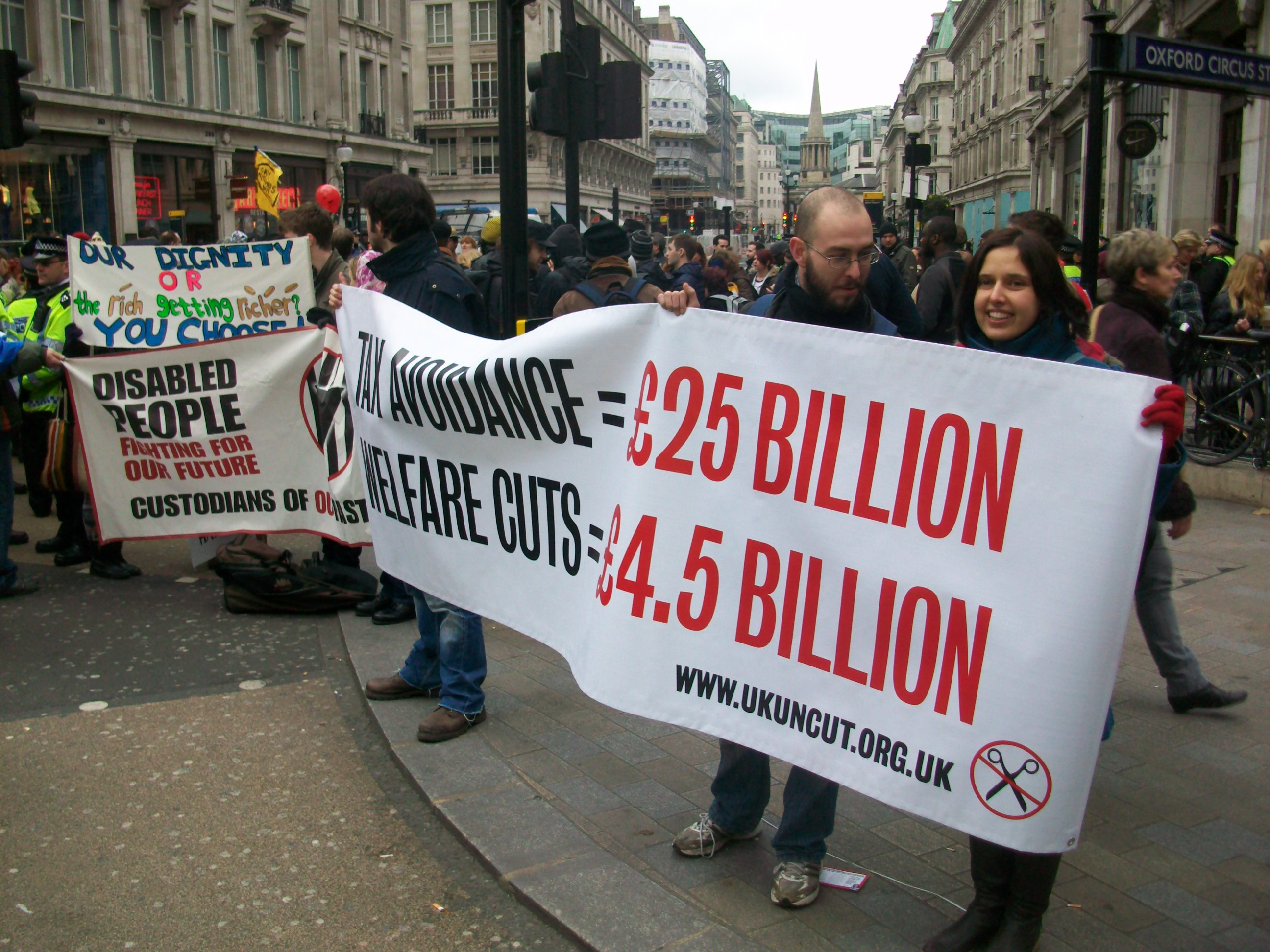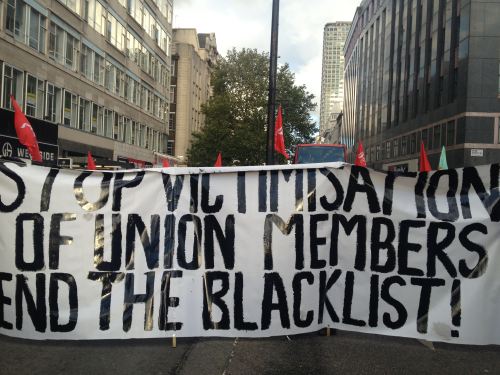•

Corporations pay scientists to perfect recipes that are focused on addiction rather than nutrition.
“What I found, over four years of research and reporting, was a conscious effort — taking place in labs and marketing meetings and grocery-store aisles — to get people hooked on foods that are convenient and inexpensive.“
If there’s one thing the horse meat scandal shows, it’s that we can’t trust capitalists to produce our food. The food industry is just that – an industry. Under conditions of capitalism, every food company will look for market advantage and ways to cut corners and gain consumers.
The fact that our food is what keeps us alive, and is also what determines to a large extent the quality and length of our lives, is and always has been totally irrelevant to the corporate executives who direct the majority of the world’s food production.
Food contamination was rife in the 19th century (chalk in the flour; dust in the tea; cat and rat in the beef mince) – the poorer you were, the more likely it was that your food was contaminated. Modern marketing and packaging has given us the impression that all that was in the past, when in fact it has been raised to a fine art and made more endemic and systematic.
Business is business, and MAXIMISING PROFIT is what determines all practice – in food production as in any other industry.
But surely it is obvious to anyone who cares to think about it that food is too important to be produced according to such motivations. Health and vitality, mood and perception, even clarity of thought can be affected by the general state of your physical health – which is fundamentally determined by the fuel you put into your body.
To take a single example: if you consistently consume hydrogenated fats instead of the omega oils your brain needs to build cells, your body will try to build a brain out of those instead. But don’t expect it to be a brain that functions well!
Many diseases and conditions that we used to think of as ‘mental’ are turning out to have physical and dietary roots. Alzheimer’s is now being referred to by some scientists as ‘type 3 diabetes‘. ADHD, which affects a growing number of children, is most likely a result of exposure to a cocktail of environmental and food-related toxins, as is much unexplained infertility and any number of other complaints.
That old saying ‘you are what you eat‘ is turning out to be far more true than we ever realised.
Meanwhile, the food companies are employing scientists whose job it is to make sure we are addicted to the crap that is destroying our brains and our bodies – encouraging us to ‘treat’ ourselves and our children to their poisonous rubbish.
As usual, it’s the working class that suffers the most. No amount of ‘education’ about food and health will change the fact that the cheapest and easiest way to feed your family is on this rubbish.
Decent food will not arrive as a result of consumer choices by the few who are lucky enough to make them, but as a result of workers kicking out the capitalists and taking charge of food production in the interests of all.
•

Protest in central London against cuts to welfare, 2012
This article is part of the industrial report that was presented at the 9 February meeting of the CPGB-ML central committee.
********************
Another illustration of the role played by Labour councillors in implementing so-called ‘ConDem’ cuts – actually capitalist cuts – is the behaviour of the local Labour group in Harlow.
Harlow Trades Council has long supported the work of Harlow Welfare Rights and Advice in its efforts to serve the often hard-pressed local community. Recognising the clear need for the services provided by HWRA, Labour’s General Committee supported its retention before Christmas. What’s more, when the continued existence of the body was challenged on some dubious legal technicality the GC voted for a mediated solution that would not deprive the people of Harlow of this service.
Yet at 7.30pm on 28 January, Labour-run Harlow council abruptly changed the HWRA locks, banning staff from entry and at a stroke bringing its vital work in the local community to a halt.
Whilst this act of vandalism was initiated by a civil servant (the council’s chief executive Malcolm Morley), one very disgruntled Labour councillor noted that “It is clear from my discussion with members of Labour’s cabinet that the leader and a majority of the cabinet are in agreement with the officers. Most notable for their full and active support of Malcolm Morley are leader Mark Wilkinson and cabinet member Tony Durcan.”
The yawning gap between Labour’s words and its deeds prompted the councillor to reflect: “I am very disappointed that councillors don’t have much of a say in running the council. The reason I became a councillor is to help people in Harlow, but so far I have not seen any changes apart from what the government want us to implement.”
The secretary of Harlow Trades Council, David Forman, has drawn some interesting conclusions from this experience, noting that “Labour councillors hide behind the law like a matador hides behind his red cloak, which merely conceals the tools of destruction.
“A failure to understand the class-based nature of the state, with the law and judiciary being key weapons in the armoury of the ruling class, leads those on the right and centre ground to see the state as neutral and benign.
“A deliberate rewriting of history … allows the labour movement to be lulled into thinking fine oratory and legal manoeuvres by the middle classes produces reforms. In reality, it is a series of struggles on the industrial front by a militant working class that leads to changes on the political front.
“All this obfuscation is designed to disarm the working class and make them dependent on their so-called ‘betters’, thus allowing Labour and reformist union leaders to spout the worn-out phrase: ‘There is no alternative’.”
It is indeed social democracy (including its ‘left’ face) that blunts the edge of class struggle and conceals from workers the only real alternative: socialism.
•

Trade unionists protest against blacklisting in central London, 9 February 2013
This article is part of the industrial report that was presented at the 9 February meeting of the CPGB-ML central committee.
Three years on from the half-hearted raid on Ian Kerr’s ‘Consulting Association’ blacklisting scam and his conviction on data protection offences, the scandal is refusing to go away. (See Proletarian, December 2012)
Instead, thanks to the efforts of the Blacklist Support Group and workers fighting for redress both in the High Court and in the European Court of Human Justice, more and more is coming to light about the blanket surveillance of workers – in the construction industry and elsewhere.
It turns out that the CA blacklist was used for high-end government projects including the Olympics, the MOD, Portcullis House and the Jubilee Line, and speculation is mounting that blacklists were used in recruiting for Crossrail.
Whilst the range of building companies involved in snooping extends to just about every major operator, pride of place in this rogue’s gallery has gone to McAlpine, run by family scion Callum. He acted as chairman of the CA between 1993 and 1996, and all CA meetings took place at his office.
Under scrutiny by the Scottish Affairs Committee, McAlpine pleaded ignorance or a poor memory, but confessed to heavy use of the blacklist throughout 2008, ‘excusing’ himself on the plea that he was chasing ‘illegal’ immigrants, not union militants! Just how much there was to cover up became clear given the circumstances surrounding the company’s action in paying off Kerr’s £5,000 fine, his legal expenses and the redundancy pay-outs to CA’s staff.
Whilst Callum McAlpine got out the violin, claiming that the pay-off was a “humanitarian and reasonable action”, everything was done at the time to conceal the cosy McAlpine connection. McAlpine’s head of human resources, David Cochrane, himself acting as the last chairman of the CA, warned Kerr to hide the hush money in his daughter’s bank account.
As Kerr told the Scottish Affairs Committee in November, shortly before his death: “I had put myself at the front and took the flak … so that they wouldn’t be drawn into all of this. They would remain hidden.”
Now that Labour is out of the driving seat, there is much sound and fury to be heard at Westminster, with indignant opposition benches deploring the refusal of the ConDem government to take the blacklisting scandal seriously. It will be recalled, however, that Labour had the opportunity in 2009, when the scandal broke, to deal with the issue.
Indeed, Mandelson put an amendment to the Employment Relations Act through in 2010, supposedly fixing things. Yet it rapidly became clear that nothing had really changed. As the law stands, blacklisting as such is still neither unlawful nor a criminal act.
To get redress, it is necessary for the blacklisted worker not only to prove that he has been blacklisted, but also that his inclusion on that blacklist is the sole reason he is turned down for a job – a well-nigh impossible task, especially given the legal resources commanded by the companies.
And in any case, how can you seek redress if you don’t know you are on a blacklist in the first place? As of autumn 2012, only 194 of the 3,213 workers known by the Information Commissioner’s Office to have been blacklisted are aware of the fact. Nor is this surprising, since you can only find out if you are on a blacklist by phoning up the ICO and asking them.
Some might not unreasonably fear that asking the question is itself asking for trouble.
Labour in government had ample opportunity to ban blacklists in 2009. It failed to do so for the same reason as every other Labour government in history: because Labour is just as much a servant of the bourgeoisie as are the Tories against whom it rails.
Surveillance of workers did not begin with Kerr’s racket. The Consulting Association began its career in 1993 by paying £10,000 for an already-existing database of blacklisted names. The source of that database was the Economic League, of which Kerr was himself an employee.
The League was founded in 1919 to root out communist and left-wing organisations and individuals. Working closely with the British Empire Union fascists, it played a key role in attacking the general strike in 1926. Its founder had led the Naval Intelligence Division of the Admiralty through the first world war, and the chairman of the BBC sat on its council.
Through the 1960s, 70s and 80s, the League ran a comprehensive blacklisting service. Despite being regularly exposed in the press of the time, it seemed to enjoy a charmed existence, until the heat from a parliamentary inquiry in 1990 finally obliged the company to formally dissolve itself – only for its work to be taken up again by Sir Robert McAlpine and the Consulting Association.
The bourgeoisie can have every confidence that Kerr’s work will now be taken up again by other hands working to an identical agenda – until such time that the workers’ movement frees itself from the suffocating Labour embrace and takes meaningful action to stop it.
Just how corrupting an effect social democracy has upon the trade-union movement is clear from the evidence now emerging of collusion between some unions and the Consulting Association.
According to Construction News: “Evidence has emerged that suggests union representatives may have ‘liaised’ with contractors to blacklist workers from construction jobs. But an investigation by Construction News has uncovered documents that suggest union officials may also have provided information to the blacklist.
“One of the files from the blacklist, seen by CN, describes a worker, Michael Anderson, as ‘not recommended’ by Amicus … Mr Anderson’s redacted file says: ‘1997–1999. Worked at JLE [Jubilee Line Extension] during electricians’ dispute but not involved in any actions. 2005 Oct 26: Information received … that the above is ‘not recommended’ by Amicus.’ It adds: ‘Above information came from [redacted] of Amicus.’”
Mr Anderson’s summing up is damning: “I am an ordinary spark. I have spent long periods in unemployment. It is not just financial. It is everything.”
This echoes the testimony of another blacklisted electrician, Steve Acheson, the leader of the EPIU’s Manchester branch. Confronted with evidence related to union involvement in the collection of blacklist data, he told Construction News: “I have been a union member my whole life. It is a very hard decision whether to sue. But I have worked just two years in the last 12. Knowing that part of the reason is because of union involvement is very difficult to take.”
The January 2013 edition of Site Worker had this to say: “When it came to light, after the Information Commissioner’s Office exposed the Consulting Association’s construction blacklist in 2009, that some Unite and Ucatt officials had allegedly been supplying information about rank-and-file union members directly to the CA, a new trade-union low had been reached …
“Unite and Ucatt are disgustingly and disgracefully trying to cover up the conduct of these officials and to sweep this under the carpet. It has been reported that, in 2006, the then general secretary of Unite, Derek Simpson may well have known about the CA and its activities yet did not act.”
Cleaning up the unions must begin by breaking the link with Labour.



